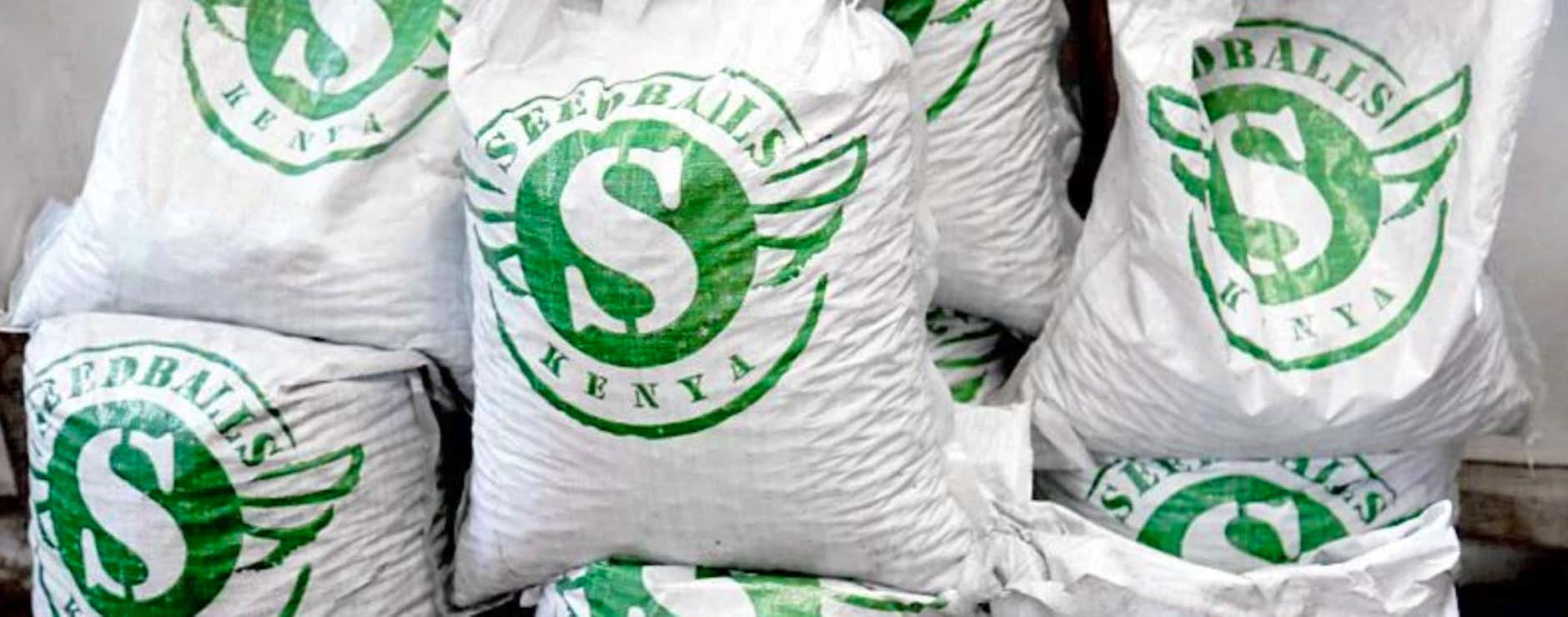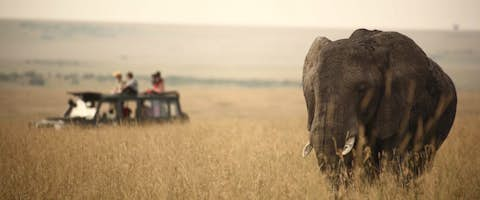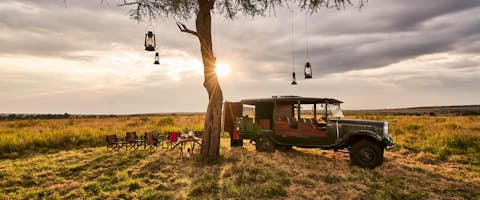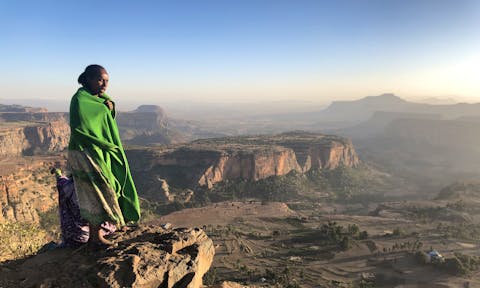Fighting Deforestation
You’d be forgiven for thinking that these small, brown pellets are some kind of animal dropping. But in fact, these little spheres are spread by Seedballs Kenya. A joint collaboration between Chardust Ltd and Cookswell Jikos, together they have researched and developed this project.
Chardust is involved with manufacturing, whilst Cookswell Jikos is involved with sales, marketing and distribution. The Seedballs themselves contain acacia seeds and are deployed on the front lines to help fight deforestation and regrow the rapidly depleting forests of Kenya.
Amongst the razed forest that outlines the famous Maasai Mara, a team of dedicated volunteers and rangers scatter copious handfuls of these ‘seedballs’ into the clearings of razed woodland areas. Amazingly, a small group of people can spread approximately 22,000 balls in just a matter of minutes.
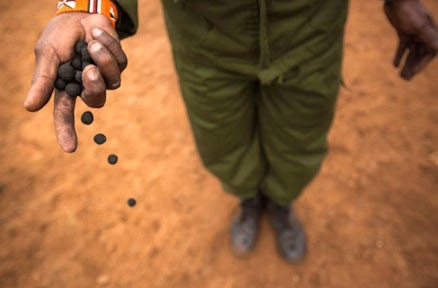
Image courtesy of Seedballs Kenya
Although small, Seedballs are tackling a mighty century-old problem in Kenya. Trees were felled en masse by colonial administrators to fuel a train across East Africa, while land today is cleared for agriculture and charcoal production as Kenya's population continues to grow and expand. Even the forests bordering the Maasai Mara is no exception, chipped away for pasture, crops and cheap charcoal.
Forests, which cover 7% of Kenya's landmass, also act as water reserves and a powerful barricade against climate change and desertification. And yet Kenya's forests are cleared at a rate of 5,000 hectares (12,300 acres) a year, the environment ministry said in 2018.
For three years, the team has been giving nature a helping hand by scattering Seedballs by any means possible — on foot, by car and even dropping them by helicopter and throwing them via slingshot.
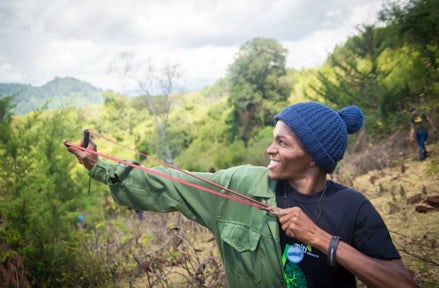
Image courtesy of Seedballs Kenya
Developed by Seedballs Kenya, the casing of charcoal dust protects the seed inside from being eaten by mice, birds or insects before it has the chance to germinate. The shell is semi-porous, giving it a fighting chance even in the aridest conditions.
"You can throw them out year-round. It would sit there, wait for the rain to come, it washes the dust away, and then the seed is back to its natural state and will be able to start growing," said Teddy Kinyanjui, the co-founder of Seedballs Kenya.
The idea, however, is not entirely new. In ancient Egypt, similar seeds were coated in mud to protect them from the elements and hungry passers-by. But instead of mud, the innovation in Kenya is using cheap, abundant charcoal dust to forge their own casing.
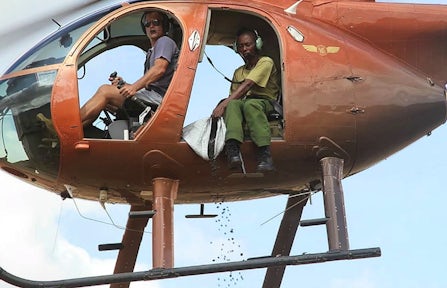
Image courtesy of Seedballs Kenya
"It is kind of a closed-loop cycle," Kinyanjui says. The dust used to compound the pellets is a by-product of the charcoal industry, which itself is a driver of deforestation, with felled trees slow-heated in kilns to produce the popular and inexpensive fuel.
Seedballs only contain indigenous species, mainly varieties of acacias, the classic tree of the East African savannah, but one much sought-after and felled for the quality of its wood.
In Kenya, Seedballs are purchased by smallholder farmers wanting a cheap way to green their land, with major buyers donating 500kg (1,100 pounds) of the seeds at a time to groups working in reforestation, like the Mara Elephant Project. The company has sold 13 million Seedballs since launching in mid-2016.
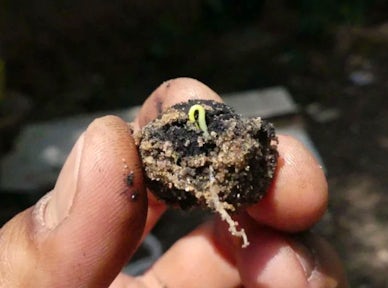
Image courtesy of Seedballs Kenya
Of those thrown into the wild, only a small number — somewhere in the 5 to 10% range — have actually yielded a shoot as of yet. “The germination rate is low, and some seeds can hibernate for years — making visible gains long in the making,” founder Kinyanjui says. "Trees are slow, especially in these days where everything is Instagram and quick quick quick...Telling people to wait three years, or whatever, that's a very hard thing."
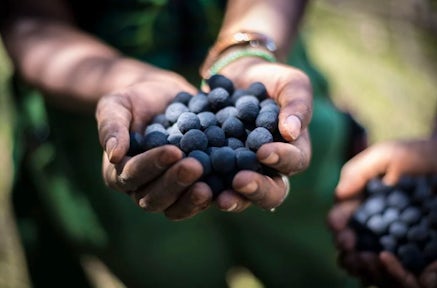
Image courtesy of Seedballs Kenya
Fighting Deforestation with Seedballs
Popular Trips to Kenya
The tours below showcase just some of what is possible. Use these itineraries as starting points, or to draw inspiration. Then get in touch, and let our expert team help craft the perfect itinerary for you.

